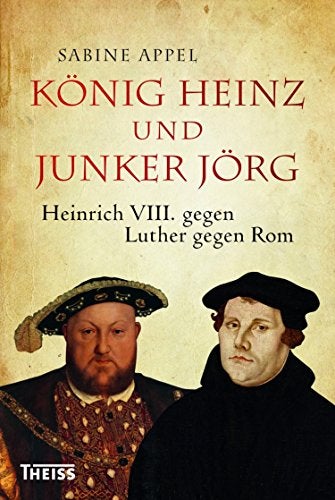CANCELLED DUE TO ILLNESS

In 1521, when Martin Luther translated the New Testament of the Bible as a noble prisoner in the castle of Wartburg, detained there by the elector of Saxony to protect him from the rage of his enemies, Henry published a scathing attack on Luther and a direct response to his recent publication, De Captivitate Babylonicae. The king’s book, Assertio Septem Sacramentorum adversus Martinum Lutherum (A Defence of the Seven Sacraments Against Martin Luther), was also written in Latin. Henry dedicated the book to Pope Leo X and afterwards was bestowed the title defensor fidei (Defender of the Faith), a title the Queen still bears today.
Luther reacted with indifference. In his eyes, a king - and especially that particular king - was a vain worldly sovereign and therefore no worthy opponent for his theological disputes. He even suggested that the Assertio had not been written by the king at all. However, in the end he was more or less forced to respond, as the king’s book inflamed a dispute on a new European level.
The representatives of the Old and the New Faith and many famous intellectuals of the age were soon involved in the quarrel that went on for years - not always in the distinguished academic language you might expect from such a discussion, as you can see in the example of Sir Thomas More. For him, Luther was "a lousy little friar," "filthier than a pig and more foolish than an ass," fit only "to lick with his anterior the very posterior of a pissing she-mule." Period. In the end, it was all a question of mankind´s salvation. Most serious matters.
The story and the disputes reveal that the Reformation was a European event in the full sense of the word, bringing the most virulent questions, fears and doubts of a thrilling epoch into light. Join us for some insights into this fiery debate that eventually ignited an entire continent.
About the Author
